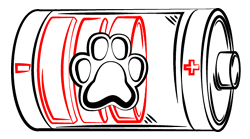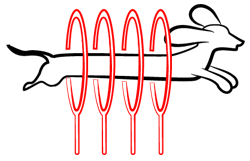
Paws ‘N’ Pups Quickview
Size
| Energy Level
| Trainability
| Paws ‘N’ Pups Rank
|
Characteristics
| Physical Characteristics: Height: 22-28” Weight: 60-70 lbs. Energy Level: Moderate | Colors: The Lurcher is found in the following colors:
|
Health & Longevity
Average Life Span: 12-15 years
The Lurcher is considered a hardy and healthy breed, but as with any breed, poor breeding can lead to puppies that have different medical illnesses and genetic conditions. Some of the most common conditions to look out for include bloat, heatstroke, muscle injuries, and osteosarcoma.
Bloat is a condition that affects many dogs that are considered large breed or active. Bloat happens when the stomach fills with too much gas, which causes the stomach to expand and place pressure on the other organs around it. This is a fatal condition if it is not caught and treated in time.
Heatstroke can occur when a dog is left out in the sun for too long. You need to make sure that your puppy has fresh water available at all times and that he or she has a shady area to escape to when it is too hot. The most common symptom of heatstroke is a dog who is lethargic and panting heavily.
The Lurcher is active by nature and a known hunter, which means he or she is agile and quick on his or her feet. With the fast movement and jumping, he or she can easily pull or injure a muscle. You should definitely keep an eye on your puppy as he or she plays and seek medical attention right away if you suspect an injury.
Lastly, osteosarcoma is a type of bone tumor that is found in the Lurcher and other breeds of dogs. This is an aggressive disease that can quickly consume your pet and his or her body. This type of bone cancer does not typically present itself until age seven or beyond. If you do think that your puppy or older Lurcher may have this condition, speak with your veterinarian right away.
The Lurcher’s life expectancy is 12 to 15 years.
Temperament & Train-ability
The Lurcher is considered a well-mannered, gentle, and intelligent breed. You will find that this puppy makes a good addition to your family, especially since he or she is good with kids and tolerant of their antics.
The Lurcher is considered a well-behaved dog, which means you will not have as many behavioral issues with them, as you might with other breeds. The Lurcher is by nature a hunter and the hunting instinct does tend to come out quite a bit, so this is not a breed that should be in a home with other smaller pets. It’s okay for this breed to be around other dogs, just avoid cats, small rodents, rabbits, etc.
If you’re looking for a puppy that will show you affection and provide the family with many laughs, this is the breed for you. Your puppy will work hard to form a bond with all members of the family, and this bond will be strong.
It is important for you to raise your Lurcher puppy around children and also other animals, so that the hunting instinct is put to rest. Your puppy will behave better around those who he or she has been near since his or her early life.
As mentioned above, this breed is considered a hunter and as such, will require a lot of room to run around and roam. You will notice that your puppy is quite active and likes to play. A good hour out in the yard is enough to wear him or her out and a 30-minute walk daily will do the trick.
This is an intelligent breed that trains well. You need to make sure that you are consistent when it comes to training, or your dog will revert to old habits.
Grooming
The Lurcher typically has short hair and a smooth coat that is easy to maintain. While this is true for most Lurcher’s, some do have a bit of a longer coat. If your Lurcher has a short coat, you can get away with brushing him or her two to three times per week. If your puppy has a longer coat, you will need to brush him or her once daily or every other day.
It is important to know that the Lurcher does get a thicker coat closer to winter and will eventually shed it after the cold season. You do not need to bathe your puppy on a regular schedule, bathing can be done when he or she really needs it.
Your puppy’s nails need to be trimmed and if not done on a regular basis, they can grow to be too long. This will lead to snags, breaks, and splits in the nail itself.
Diet
Since the Lurcher is considered an active dog, you need to feed your puppy a diet that is high in protein. The dry food you choose should meet the nutritional requirements of your pup.
Your Lurcher should receive two and a half to three cups of food per day, split into two meals. If you are unsure of what type of food to feed your puppy, start by looking for a dry kibble with wholesome ingredients. You can also ask your breeder or veterinarian for recommendations.
Looking for a Lurcher?
 Find A Lurcher Breeder |  Lurcher Puppies For Sale |  Adopt A Lurcher |
Cost
A Lurcher puppy will cost you anywhere between $300 and $900 depending on the breeder you choose to work with. It is unlikely that you will find this breed in any shelters.
In addition to the cost of your puppy, you should estimate to spend another $300 to $600 annually for vet checkups and vaccines.
Paws ‘N’ Pups Ranking
Paws ‘N’ Pups ranks every breed out of 4 with 1 being easiest to integrate into your life and 4 being the toughest – The lower the ranking the better.
Ranking takes into account a few basic factors including cost, skill level needed, high vs low maintenance and how critical regular training is to success. The Lurcher is a wholesome breed that is active and well-mannered. When socialized early and raised well, your puppy will get along with other animals and kids. This breed is considered easy to train and you should not expect to run into any snags. This breed ranks a 2.
Breeds Similar To Lurcher
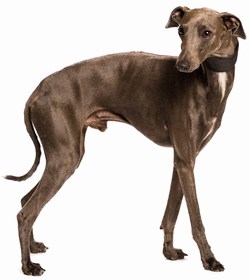 Greyhound | 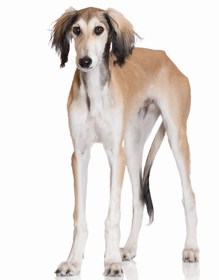 Saluki | 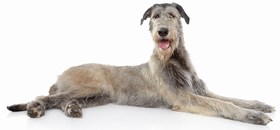 Irish Wolfhound | 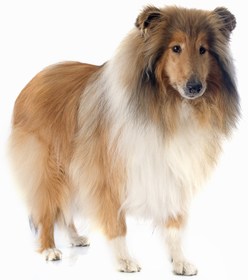 Collie |


